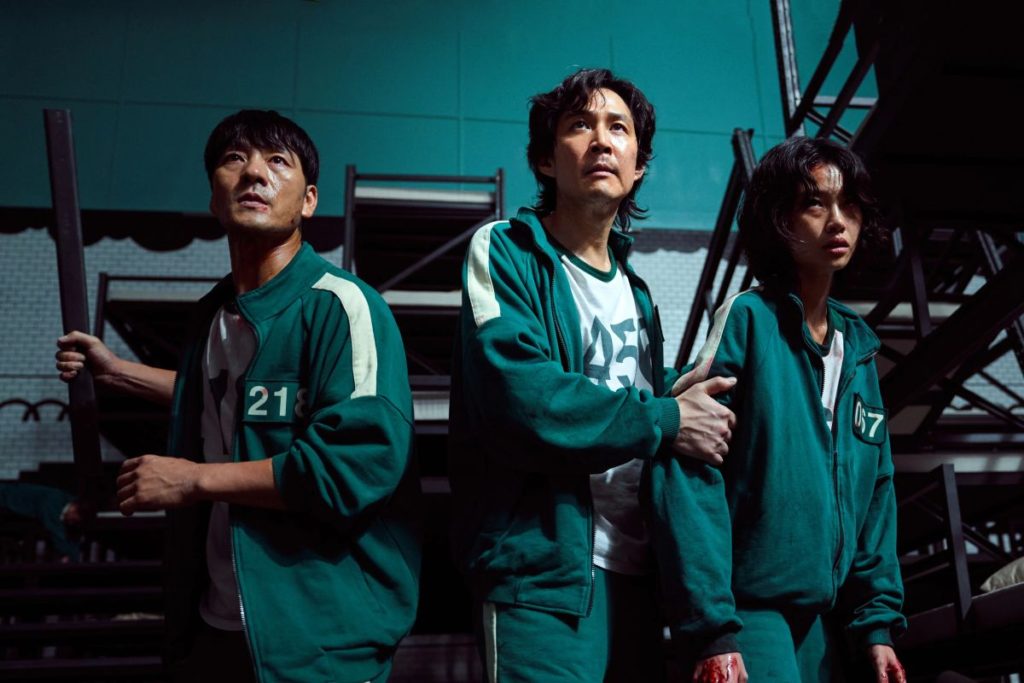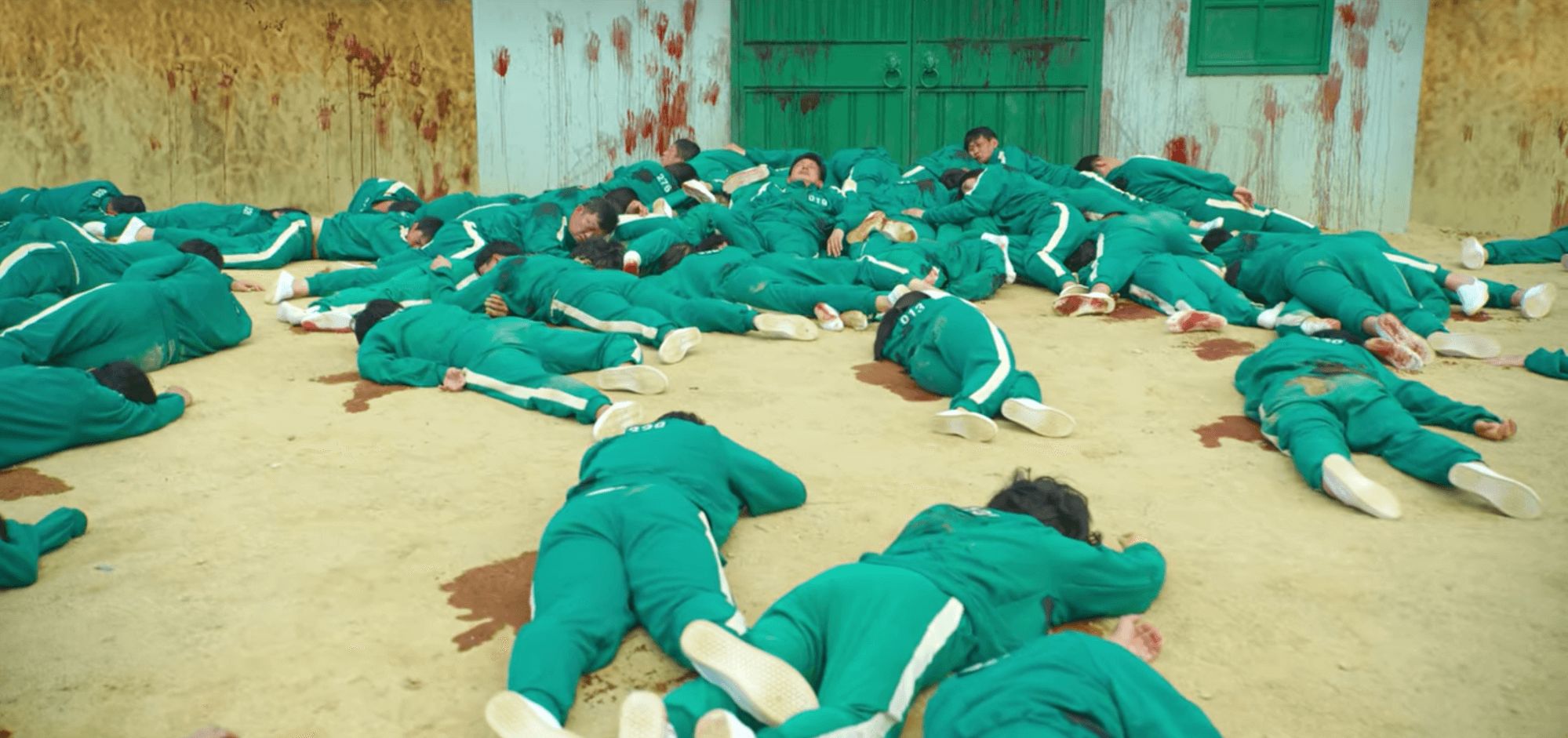Squid Game
Very disappointed in the lack of actual cephalopods. Would not watch again. Two stars.
Ok, a bit harsh. But I’m not that sold on the hype here. We finished it last night and… it was alright. Korean culture has been on a significant up-swing over the last few years. It probably started with Gangnam Style, becoming the first YouTube video ever to hit a billion views at the end of 2012. There has also been the rise of K-Pop. I have… thoughts about it, but will not risk incurring the wrath of the mob by opening that can of worms. Then we saw Parasite becoming the first foreign language film to win the Academy Award for best picture.
Now, there is Squid Game, which came out of nowhere, with remarkably little promotion, to become the most water cooler television show since Game of Thrones ended [That was May 2019, back in a literally entirely different world] The concept of a lethal game, in which participants are made to kill each other for the benefit of the ruling classes (be that as entertainment, or pour encorager les autres) is hardly a new one. It may have been shocking when Battle Royale came out, especially because the participants were minors. But that was over 20 years ago now. It became mainstream fodder with The Hunger Games, a cinematic franchise which grossed about three billion dollars worldwide. We’ve been here before.
I guess the twist in this case is that the participants are volunteers, taking part for financial purposes. This is made particularly clear in the second episode. After the massacre of the first round has wiped out half the competitors, the remainder vote by the narrowest of margins to pull the plug on the game. But returning to their lives, they find the financial problems which helped make them enter the game to begin with, remain unresolved. So they return, in the hope of winning the money which will let them escape. Consequently, it has been read as a critique of capitalism.
But what I think is missing is an acceptable of personal responsibility. Few people accumulate massive debt by chance. Though the competitors here – at least, many of the ones with whom we are expected to sympathize – are portrayed as having done so for altruistic purposes, e.g. to pay medical bills or get a relative out of North Korea. But the main protagonist, Seong Gi-hun, ran up his debts gambling. His situation is one of his own making, not capitalism’s fault. The game basically plays into his addiction: only he’s now betting on himself, with his life as the stake.

Curiously, the people running the system are also scrupulously about maintaining the fairness of the game, within its own twisted logic, of course. When a contestant is found out to be collaborating with a rogue group of guards, getting inside knowledge, retribution on all involved is swift. “They tainted the pure and fair ideology everything here has been built upon. Each and every one of you is considered an equal within the walls of this facility. You must be guaranteed the same opportunities without being disadvantaged or facing any kind of discrimination.” This sounded rather more like hardcore BLM/Marxist dogma to me.
The show also felt stretched out, with a running time of over eight hours, and might have worked better as a two-hour movie. [It’s not alone among Netflix series there: concurrently, we were also watching Midnight Mass and that feels similarly stretched thin] The entire subplot with the undercover cop investigating the game added little or nothing to the overall impact. Though we REALLY must get one of those Korean phones that apparently never run out of juice. It seemed a long way to get to the reveal at the ending, which Chris guessed was coming. She also spotted the one with the game’s architect. and his motivation for spending what must have cost hundreds of millions of dollars was pretty weak.
The film does have some great production design, inhabiting a world which often looks like a nightmarish version of a Sanrio store. And I certainly won’t feel the same way, if I hear The Blue Danube in future. The performances also manage to get us invested, especially veteran actor Lee Jung-jae as Gi-hun. By the end, when he is faced with a decision whether or not to walk away, there may have been yelling at the television set in TC Towers. But the story-line required just too much in the way of contrivance and coincidence to be truly effective. Gi-hun and his childhood bestie both end up in the game? What are the odds?
In the end, I think we probably will still go ahead and watch any (likely inevitable now) second season. Though I’d be hard-pushed to say quite why this Korean series took off in the way it has done, of all the foreign shows which Netflix contains. I’d say there are certainly better on the service – we’re big fans of Midnight Diner – but I guess there is no accounting for popular taste in large volume.

